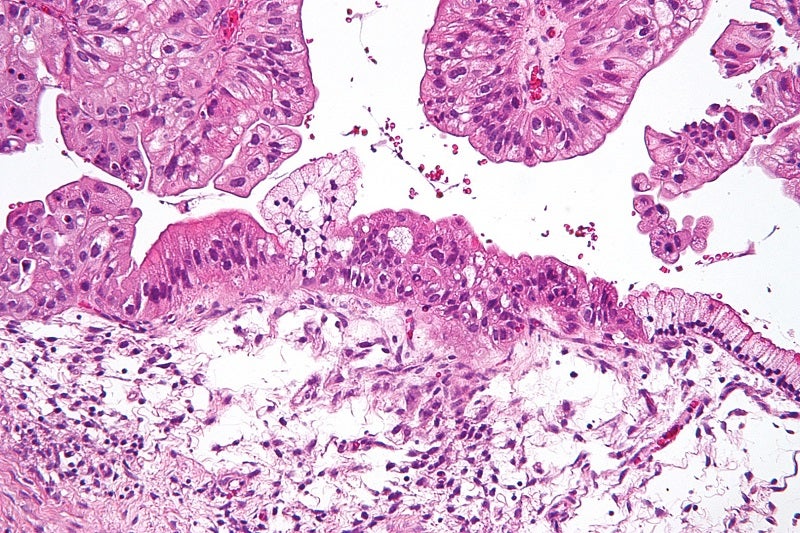
TILT Biotherapeutics has dosed the first US participant in a Phase I ovarian cancer trial of its lead asset, TILT-123.
The multicentre, open-label, dose-escalation, multinational clinical trial has been designed for evaluating the safety of oncolytic adenovirus, TILT-123, along with MSD’s (a tradename of Merck & Co) Keytruda (pembrolizumab) in patients with platinum resistant or refractory ovarian cancer.

Discover B2B Marketing That Performs
Combine business intelligence and editorial excellence to reach engaged professionals across 36 leading media platforms.
Treated at the Mayo Clinic, the US patient needs to complete enrolment in the first cohort of three patients, while the remaining two patients are in Finland.
The company stated that up to 15 participants are anticipated to be enrolled in the Phase I trial.
TILT Biotherapeutics CEO Akseli Hemminki said: “Ovarian cancer is a killer disease with a pressing need for better therapies.
“There are no oncolytic viruses or check point inhibitors approved for use in that indication.

US Tariffs are shifting - will you react or anticipate?
Don’t let policy changes catch you off guard. Stay proactive with real-time data and expert analysis.
By GlobalData“The first US patient dosed is a significant milestone as we strive to make a difference using our armed oncolytic viruses in this difficult to treat disease.”
By the end of the year, the company is investing in its own US operations and opening trial sites in the country, as it progresses towards Phase II trials.
Now, the European and US open Phase I clinical programmes of the company cover several cancer types that include melanoma, ovarian cancer, head, and neck cancer.
Last month, TILT Biotherapeutics and MSD entered into a new partnership and supply deal for assessing TILT-123 and Keytruda combination in immune checkpoint inhibitor refractory non-small cell lung cancer (NSCLC) patients.





